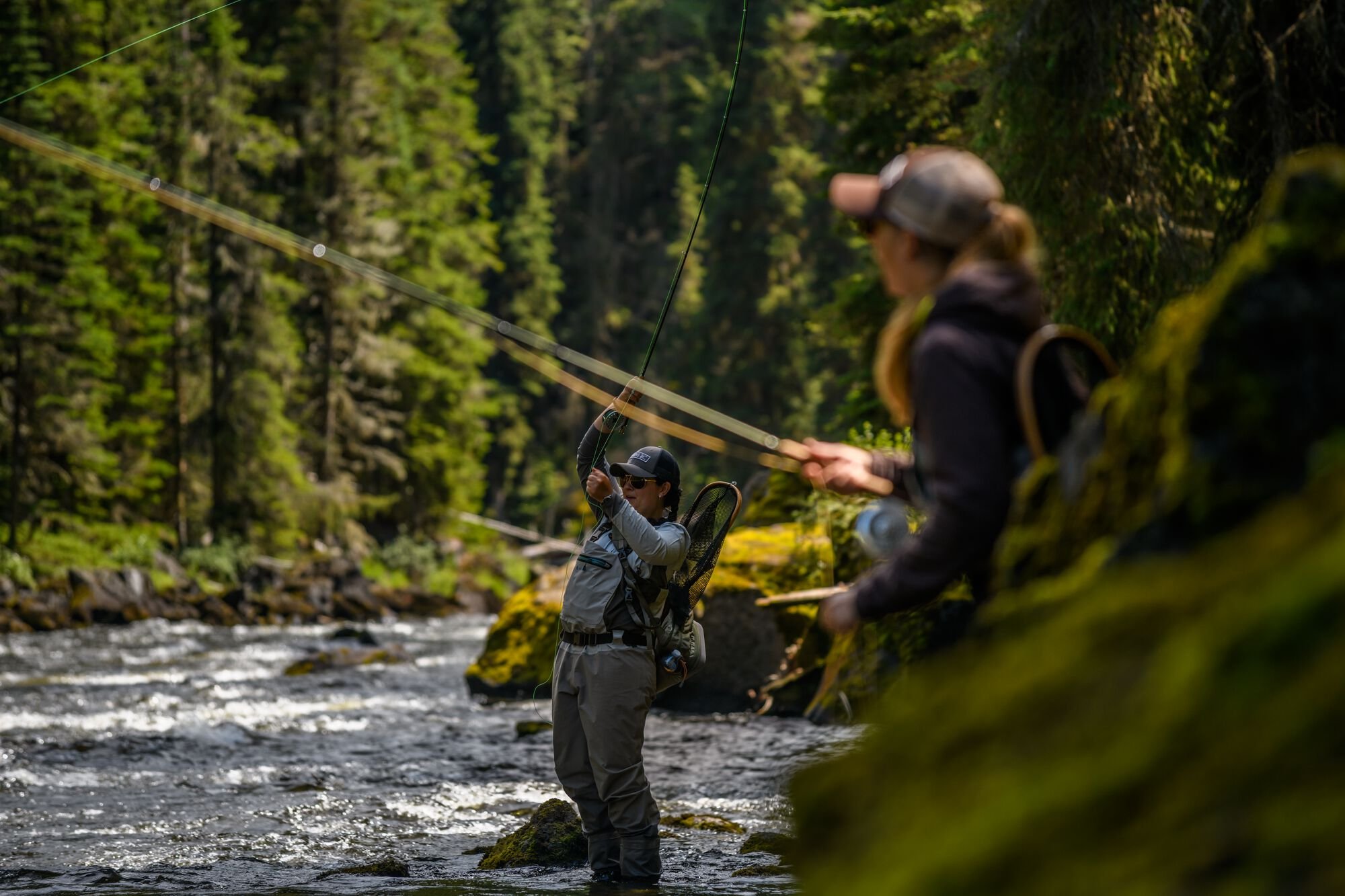
Research & Insights
Research and data are crucial tools that help us all advocate for outdoor recreation, ensure responsible stewardship of natural spaces, enhance user experiences, and foster volunteerism and community engagement.
Andrew Strain photo
Fixing the knowledge gap
Data and research are integral to ensuring outdoor recreation remains a positive and sustainable activity for outdoor enthusiasts and the environment. They help guide decision-making, improve experiences, promote responsible behaviour, and contribute to the well-being of natural ecosystems and those who enjoy them.
At ORCBC, we are committed to supporting the outdoor recreation sector by developing and sharing resources for best practices, case studies, data and insights, and we welcome opportunities to collaborate with others who share these values.
News
DIY visitor & user research toolkit
ORCBC has released a comprehensive toolkit designed to help smaller organizations conduct visitor research using a "do-it-yourself" approach. It provides guidance, templates, equations, examples, and resources. It also explains how to analyze results to estimate economic impact, communicate community and economic benefits, and inform management and planning.
New research illustrates the local impacts of outdoor recreation for BC communities.
ORCBC has released a new report on the local impacts, challenges and opportunities of outdoor recreation. We interviewed practitioners in Burns Lake, Fernie, Revelstoke, Squamish and Tofino, which explored economic, community, environmental, and equity topics.
Survey highlights need to invest in B.C.’s trails, parks and outdoor spaces
This summer, we released the findings of a new study. In May 2024, Ipsos surveyed 800 British Columbians on various topics, such as outdoor recreation participation, preferred types of recreation areas, the influence of access to trails and outdoor amenities on residential choices, and the benefits of increased government investment in outdoor recreation amenities.
BC outdoor recreation economy - impact modelling project
The Ministry of Jobs, Economic Development & Innovation leads efforts - with support from industry partners such as ORCBC, Kootenay Outdoor Recreation Enterprise and Sea-to-Sky Outdoor Recreation Enterprise - to develop an economic impact model that can assess the value of the outdoor recreation economy to the overall BC economy.
Why we need research
User preferences
Research on user satisfaction, feedback, and preferences helps organizations tailor their services to better meet the needs of recreation users. Examples include improving amenities, diversifying activity options, and enhancing overall user experiences.
Economic impact
Data on outdoor recreation's direct, indirect and induced economic contributions, such as spending on gear, accommodation, local services and jobs, help communities and policymakers recognize the financial benefits of maintaining and enhancing recreational opportunities.
Resource management
Data provides insights into the impact of outdoor activities on the natural environment. By studying ecosystems and wildlife behaviour, researchers can identify vulnerable areas and recommend guidelines for responsible use to prevent or mitigate adverse impacts.
Policy development
Research findings guide the creation of policies and regulations related to outdoor recreation. This includes decisions about permits, access restrictions, wildlife protection, and more.
Infrastructure planning
Data on visitor patterns and usage of different areas can inform the development and maintenance of trails, campsites, and other recreational amenities. This helps distribute the impact of visitors, minimize overcrowding and protect our lands and waters.
Education campaigns
Research can support educational initiatives that promote responsible outdoor behaviour and ethical wildlife interaction, thereby fostering a culture of environmental stewardship among recreational users.
Enhancing safety
Research can identify common accidents and safety concerns in outdoor recreation spaces. This information allows organizations to implement safety measures, provide appropriate signage, and offer educational materials to enhance safety.
Conflict resolution
When different user groups share the same outdoor spaces, conflicts can arise. Research can shed light on these conflicts and inform strategies for mitigating tensions and finding solutions that work for everyone.
Recent ORCBC publications and research
Best practices guidelines
Conducting and Using Visitor and Recreational User Research (2024)
Guidance Toolkit for Engagement with Indigenous Communities (2024)
Trail Development Guidelines to Minimize Disturbance to and Conflict With Large Carnivores (2023)
Best Practices for Developing Public Trails on Private Land (2022)
Working in a Good Way (2019).
Reports
Outdoor Recreation for Community and Economic Development Guidebook (2025)
The Impacts of Outdoor Recreation in Rural B.C. Communities (2023).
Wild Places and Green Spaces: A Citizen’s Guide to Proving Public Access - published by Environmental Law Clinic at the University of Victoria (2022)
Enhancing Public Access to Privately Owned Wild Lands – published by Environmental Law Clinic at the University of Victoria (2016)
Trail Fund Recommendations – Report to the Provincial Trails Advisory Body (2020)
Research summaries
Benefits of Outdoor Recreation - A Literature Review (2024) NEW!
How Being Active in Nature Supports our Physical and Mental Health (2020)
How Amenity Migration is Reshaping BC’s Rural Landscape (2020)
Webinars
Polls
Trails and outdoor recreation in BC (Ipsos 2024)
Trails and outdoor recreation in BC (Ipsos 2023)
Trails and outdoor recreation in BC (Ipsos 2022)
Proposals
Economic Impact Collection
Are you interested in outdoor recreation research? Seeking information to inform a funding application, advocacy campaign or project? Our collection of economic impact research from BC and beyond can help recreation groups, local governments and others find existing research conducted in similar communities and provide valid answers to questions regarding the benefits they can anticipate from new trails and recreation amenities in their own community.
If you don’t find what you are looking for, Headwater Economics in Montana has an excellent library of trail benefits which might be worth checking out.










